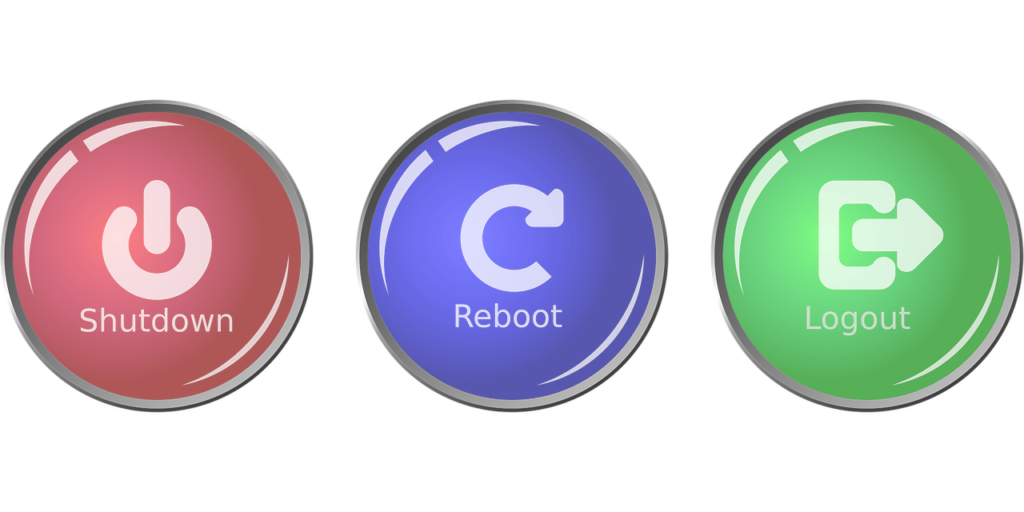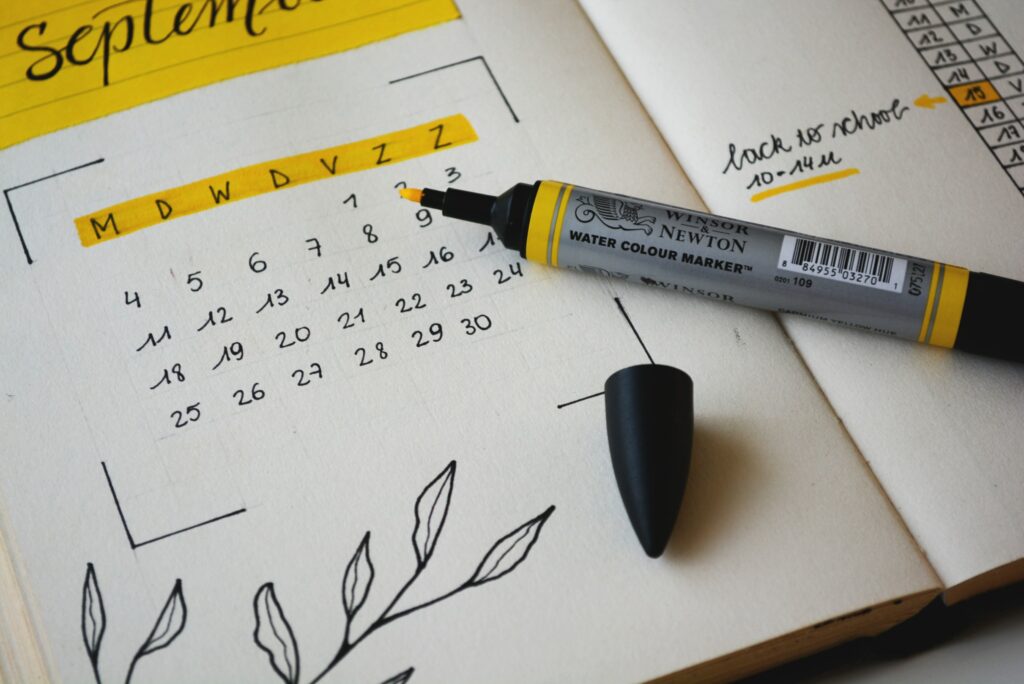We spend most of our time at work, a work that requires concentration and effort. When we are not working, it is important to recharge our batteries. Yet many of us find it difficult to unplug when we leave the office. If you, too, find it hard to stop thinking about work when you’re not working, this post is for you. You’ll find concrete tips on how to enjoy your free time and unwind.
You’re not alone!
A few weeks ago, I was leading a workshop. It was in the morning, we had just started, and I had asked participants to share their burning questions, that is what motivated them to spend their day on Zoom talking about time management when the weather was so nice outside.
We arrived at Phillip, and he said:
“When I’m at work, I can’t stop dreaming at the end of the day when I come home to my girlfriend, but when I’m at home with my girlfriend, I can’t stop thinking about work. It’s absurd! How can I turn it around?”.
Dear Phillip, here is what helps me the most.
1. Don’t check your emails before leaving work or during your free time
We, humans, are afflicted by the curse of wanting to be informed of everything at all times. E-mails are the malefic agents of this curse.
Don’t underestimate the innocent “Ding” or the seemingly unobtrusive pop-up window announcing the arrival of a new message in your mailbox. These signals are designed to arouse your curiosity and create addiction. Reading e-mails is attractive because it feels like work, and it doesn’t require much effort. E-mails promise a good conscience and flatter the ego at little cost: “ I’m working over the weekend, I check my e-mails. I’m a good girl, a researcher dedicated to science”.
Unfortunately, reading emails is not enough. To be productive, you have to react to them. And that can take time. Reading your supervisor’s comments on your article on Friday at 7 p.m. won’t do you any good if you don’t have time to work on it right away. You’ll need to reread everything on Monday morning. In the meantime, you can be sure that it will spoil your weekend.
When you know that you will not process your emails after reading them, do not open them! DO NOT OPEN THEM! We are scientists, not a health emergency hotline; nobody will die from an answer that arrives Monday morning. And you will be able to enjoy your weekend.

2. Implement a shutdown routine
The work of an academic doesn’t stop at 6 p.m. sharp. We can work for as long as we like, and there’s always more to do. As a result, our minds often struggle to distinguish between work and personal time. A shutdown routine serves as a psychological signal, informing our brain that the workday has ended. It ensures we’ve covered everything and provides the peace of mind needed to transition to after-work life.

To create your shutdown routine, consider including the following elements:
- Review the tasks accomplished that day. At the end of the day, many of us feel that, even though we’ve spent many hours at the office, we haven’t accomplished anything. It’s incredible how quickly we forget the things we do. Thus, ending your day by making a list of the tasks you’ve completed can reveal surprising achievements and bring a wonderful sense of accomplishment.
- Preview tomorrow’s schedule: What are your priorities for tomorrow? Do you have any appointments? Is everything ready for them? Have you answered all urgent emails? Anticipating tomorrow’s agenda provides a sense of control and alleviates anxiety.
- Reflect on your day: Think of one thing you did well today and one that will contribute to your well-being tomorrow. This reflection builds satisfaction with your day’s work and promotes healthy habits.
- Organize Your Workspace: Tidy your workspace to invite a positive start for the following day.
- Conclude with a Ritual: Finalize your routine by shutting down your computer and engaging in a symbolic act, such as saying “Shutdown complete,” visualizing closing a book, or putting a lid on a bin. This acts as the definitive marker that your workday is over.
I’ve been following this routine for a few months, and it’s been transformative. It makes me proud of my daily achievements and helps me stop thinking about work.
3. Be active during your free time
We cannot convince ourselves to stop thinking about work. Our minds are as rational as my 3-year-old niece when she passes an ice cream truck. You can explain that we will have dinner in half an hour and don’t have time to stop; she will stare at it obsessively and keep repeating, “I want ice cream” until she gets satisfaction. The only way to get her to let go of the ice cream truck is to distract her with something else.
When we are consumed by our work, the only way to let go is to engage in another activity. Go for a run with the doctoral student from the lab next door. Take a breakdance class on YouTube. Bang your head to Rammstein (or Beyonce, if that’s your jam). Cook the vegan schnitzel recipe you saved on Instagram. Do whatever makes you happy and takes your mind off things.
Being active is the best way to enjoy yourself. Research shows that people are the happiest when they are engaged in an activity and experience flow. Flow is a state of consciousness that happens when we are absorbed in what we are doing. This experience is rewarding in itself. When we are in flow, we feel strong, alert, skillful, we lose track of time, and we forget ourselves. Flow moments are the best moments of our lives. Cultivating them is essential for happiness. So, start right now planning exciting activities for your free time.

4. Get organized
Often, we can’t enjoy our free time because we feel overwhelmed. Our mind is constantly jumping from one project to another. How many nights have I spent lying awake in bed, trying to mentally create a to-do list that seemed endless! This state is absolutely unproductive. We can’t relax because we ruminate about all we must do, but we don’t get anything done either. Worries stay as indistinct thoughts in our minds that don’t solve any problem. The only thing that really works for me in this situation is to take some time to get organized.
When you’re stuck in panic mode, take a pen, a piece of paper, sit down at your desk, and make a list of all the things you have to do. Everything! Don’t leave anything out. Now, go through the list and identify what’s urgent and what you can delegate or postpone. Make a plan of action.
When your mind will see that you’re taking care of the things it worries about, it will start to relax. Your unconscious (your elephant) doesn’t need to be agitated anymore. It knows that you’re on top of things, and you can start enjoying your free time.

5. Journal, meditate, restructure your thoughts
Our difficulties to relax usually result from anxious thoughts about the future. Our minds are preprogrammed to anticipate danger. This negativity bias is part of our survival kit and has been helpful for 100,000 years. However, our world is way more secure than our prehistoric ancestors’ wild jungles. 80% of the situations we worry about are solved more easily than we initially expected, and this percentage is even higher in anxious people (see this study). So what can we do to stop worrying?
There are several methods to develop a positive attitude. Cognitive and behavioral therapy offers simple and efficient methods to restructure unhelpful thoughts. Check this post to learn more about it. Besides cognitive restructuring, journaling or meditating are excellent methods to take distance from one’s thoughts and enjoy the present moment.
If you want to train yourself to pay more attention to the positive, I recommend the 6-minute diary. I started it two weeks ago, and I already feel more joyful. I have also been meditating for many years, which has changed my life. If you want to try meditation and follow a step-by-step program, I recommend the Waking-Up app from Sam Harris. Being in the present moment and enjoying our mind’s natural richness is the best gift we can give ourselves when we are not working.

6. Write down your ideas when they pop up in your mind
Our minds have a creative life that is beyond our control. They don’t stop working when we leave the office. They simply don’t work that way. Some days, they wait until 23:30 to sparkle with ideas. I know what I’m talking about: This post came to me in the middle of the night. Within 15 minutes, I had the first draft. It was magical!
Moments of spontaneous creativity are precious. They happen to me occasionally, but not often enough for me to tire of them. So, when I suddenly have a great idea for a new experiment or when sentences spontaneously form in my mind, I don’t care whether it’s on the weekend or in the middle of the night; I take a pen and write them down immediately before they disappear. I let the beast out and enjoy the ride.

In Sum
Not being able to stop thinking about work when we’re not working can be frustrating and sometimes even exhausting. It prevents us from relaxing and enjoying our free time and, paradoxically, can undermine our productivity when we return to work. In this post, we’ve discussed practical solutions to this challenge: refraining from checking emails post-work, engaging in enjoyable activities, staying organized, and establishing a shutdown routine to clearly distinguish between work and personal life.
By adopting these strategies, you can regain control over your time, enhance your well-being, and ultimately, be more present and productive in both spheres of life. So don’t wait; start today by choosing one or more of these approaches.
Photo credits
Tea cover photo by Andriyko Podilnyk on Unsplash.
Cell phone / laptop photo by William Iven on Unsplash.
Shutdown, reboot, logout image by Torsten Breswald from Pixabay.
Calendar photo Photo by Estée Janssens on Unsplash.
Meditation photo by Matteo Di Iorio on Unsplash.
Write ideas photo by Aaron Burden on Unsplash.